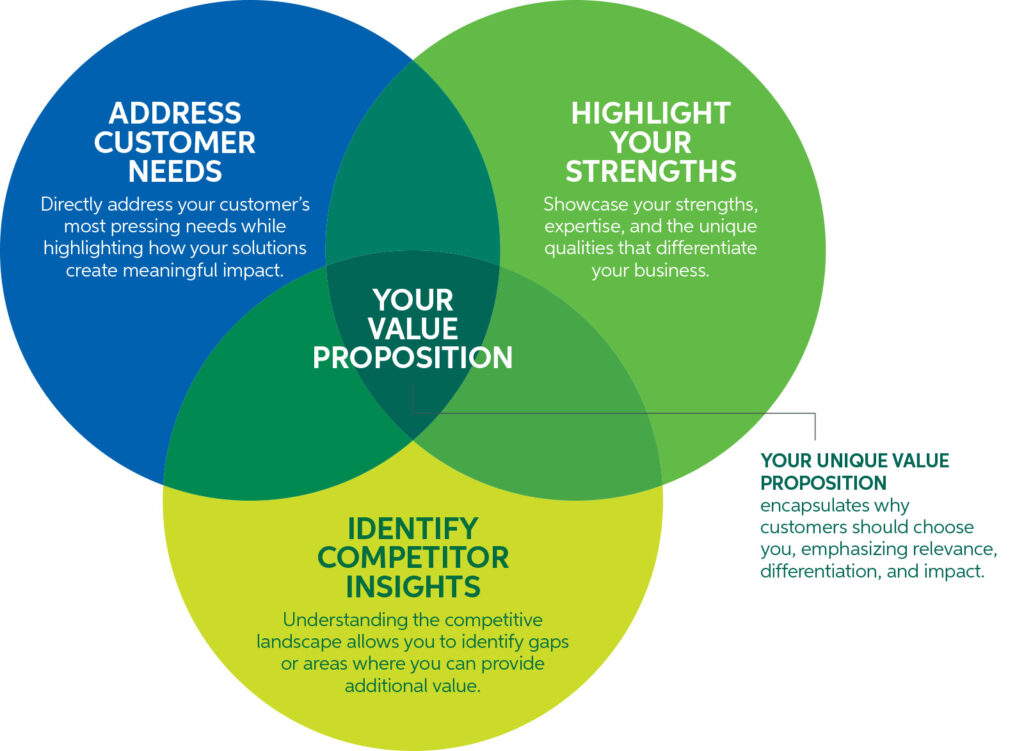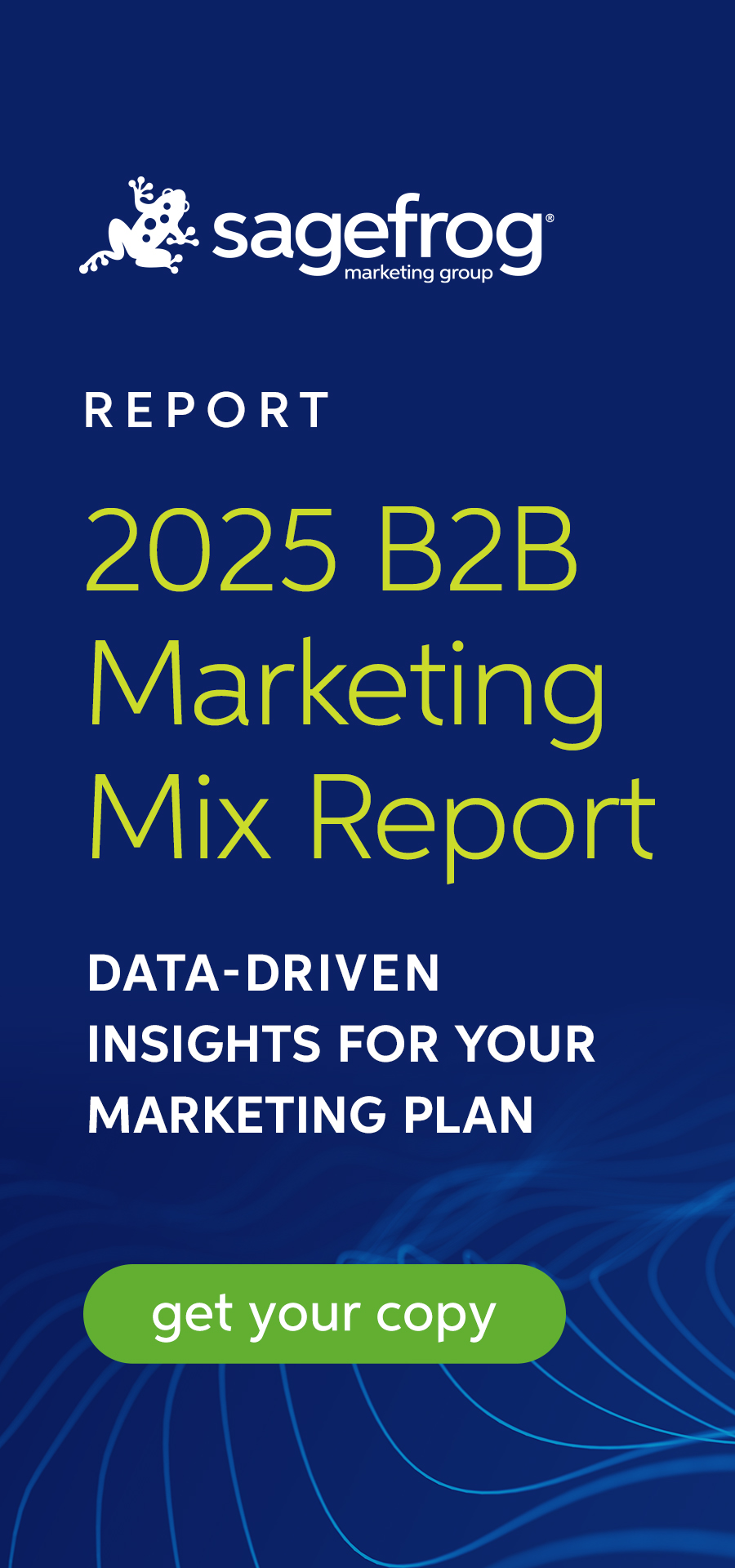The B2B healthcare market is at a tipping point. As technological advancements accelerate and regulations tighten, companies that rely on outdated or disjointed marketing strategies risk falling behind. This is an industry where trust, precision, and innovation are non-negotiable and where the wrong marketing approach can lead to lost contracts, compliance issues, or ineffective customer engagement.
Full-service marketing has moved from a competitive advantage to an essential lifeline. By integrating targeted digital campaigns, data-driven insights, and multi-channel outreach, healthcare organizations can position themselves as trusted leaders, navigate long sales cycles, and drive sustainable growth in an increasingly complex environment.
The Importance of Full-Service B2B Marketing in the Healthcare Industry
B2B healthcare marketing demands a strategic approach to navigate high-stakes challenges like regulatory compliance, complex buyer journeys, and intense competition. A full-service marketing strategy addresses these issues and turns them into opportunities for growth by aligning data-driven precision, multi-channel engagement, and ethical messaging.
Ensuring Compliance Without Slowing Down Growth
Navigating regulations like HIPAA and industry-specific standards is complex, but full-service marketing integrates compliance into every stage. By embedding secure data handling and ethical messaging across content, digital, and sales touchpoints, businesses can reduce risks while maintaining agility and protecting their reputations.
Delivering Precision Through Data-Driven Targeting
In healthcare, generic campaigns don’t work. Full-service marketing seamlessly connects data analytics, CRM systems, and predictive AI to create highly targeted campaigns through account-based marketing (ABM) and personalized content. Businesses can increase engagement, minimize wasted effort, and improve conversions by tailoring outreach to decision-makers’ unique needs.
Creating Seamless, Trust-Building Customer Journeys
Healthcare buyers interact with brands across multiple channels—websites, emails, webinars, and social media—before making decisions. Full-service marketing unifies these touchpoints through an omnichannel strategy, ensuring consistent, coordinated messaging. This cohesive experience builds trust and nurtures leads effectively through every stage of the sales funnel.
Scaling Personalization With AI & Automation
AI and automation are critical for scaling without sacrificing personalization. Full-service marketing automates repetitive tasks like lead scoring and follow-ups, while AI-driven tools personalize interactions and adapt content dynamically. This allows businesses to deliver relevant messaging at scale and align efforts between marketing and sales for faster deal closures.
Positioning Brands as Industry Leaders Through Thought Leadership
Healthcare decision-makers demand solutions backed by expertise, not hard sells. Full-service marketing focuses on developing high-value content—blogs, whitepapers, webinars, and interactive resources—that educate and solve key challenges. Businesses establish authority, build trust, and drive sustained engagement by integrating this content across marketing channels.
Maximizing Visibility Through Strategic Social Media Use
LinkedIn and other social platforms are critical for connecting with decision-makers and influencers. Full-service marketing ensures that social efforts are strategically tied to broader lead-generation goals. Instead of isolated posts, businesses benefit from a cohesive flow that amplifies reach and nurtures long-term relationships.
Adapting to Emerging Technologies for Continuous Growth
As digital transformation evolves, full-service marketing allows businesses to quickly adopt innovations like AI-powered predictive marketing, voice search optimization, and blockchain for secure data management. These technologies are seamlessly integrated into the strategy, ensuring businesses stay competitive and future-proof their marketing efforts.
By combining compliance, precision, and multi-channel coordination, a full-service marketing strategy transforms complexity into opportunity, helping healthcare businesses survive and thrive in a challenging landscape.
Key Components of a Full-Service Healthcare Marketing Strategy
A successful B2B healthcare marketing strategy is more than the sum of its parts. It requires a well-integrated, multi-faceted approach that blends digital innovation, data-driven decision-making, and personalized engagement tactics to convert prospects into loyal partners and drive sustained growth.
Digital Marketing & Lead Generation
Visibility and engagement are critical in a competitive market. Search engine optimization (SEO) ensures healthcare businesses are easily discoverable, while content marketing builds authority and nurtures leads with valuable insights. Pay-per-click (PPC) and programmatic advertising target prospects precisely when they are ready to engage, and social media marketing amplifies visibility, helping brands establish a presence in key online spaces.
From informative blogs and whitepapers to targeted ad campaigns, these efforts work together to attract qualified leads, nurturing them at every stage of the journey.
Brand Positioning & Thought Leadership
In an industry built on trust, reputation is everything. A strong brand starts with a well-defined value proposition communicating a company’s strengths and unique solutions. Thought leadership initiatives, like publishing executive content, participating in industry discussions, and sharing expert insights, enhance credibility and solidify the brand’s role as a trusted partner.
Additionally, reputation management, built through case studies and customer testimonials, further reinforces confidence among potential clients and stakeholders.
Account-Based Marketing (ABM) & Personalization
One-size-fits-all marketing doesn’t work in healthcare. ABM ensures that marketing campaigns are tailored to high-value prospects, focusing on specific pain points and offering customized solutions. Personalized outreach, combined with nurturing sequences and targeted engagement, creates a stronger connection with decision-makers and speeds up the sales process.
To be successful, ABM requires close alignment between sales and marketing teams to deliver cohesive messaging and ensure coordinated efforts across the funnel.
Data-Driven Marketing & Analytics
Data isn’t just an asset—it’s a competitive advantage. Integrated customer relationship management (CRM) systems provide valuable data for targeting, while AI-powered predictive analytics help anticipate customer needs and behaviors. Marketers can optimize campaigns in real-time using data insights, ensuring maximum impact and ROI.
Conversion rate optimization further enhances campaign performance by identifying and addressing bottlenecks, helping businesses refine messaging and tactics to increase conversions.
Omnichannel Marketing & Engagement
Healthcare decision-makers expect a seamless experience across digital channels. Marketers ensure prospects are engaged at every touchpoint by combining email marketing, webinars, events, and video content. Personalized email sequences nurture leads over time, while live events and virtual webinars provide opportunities to educate and convert audiences.
Interactive and video content keep potential customers engaged, turning complex information into easily digestible formats that maintain attention and drive action.
Compliance & Ethical Marketing
Navigating healthcare’s regulatory landscape requires precision. Compliance with HIPAA and other regulations ensures the secure handling of sensitive data, while ethical messaging builds trust through transparency and integrity. Businesses prioritizing secure data handling and regulatory adherence can position themselves as trusted, reliable partners in the eyes of their target audience.
Performance Tracking & Continuous Optimization
Continuous improvement is the backbone of effective healthcare marketing. Key performance indicators (KPIs) provide benchmarks for success, while A/B testing identifies what resonates with audiences. Agile strategy adjustments allow marketers to quickly pivot and refine their approach, ensuring that campaigns remain effective and adaptive to changing conditions.
When these components work together, healthcare businesses benefit from a cohesive, high-impact strategy that generates leads, builds trust, and drives sustained growth in a competitive market.
Healthcare B2B Marketing: Nixon Medical’s Success Story
A well-executed full-service marketing strategy can be a game-changer, and Nixon Medical is a prime example of this success. Founded as a small family business, Nixon Medical became a nationally recognized leader in medical apparel and laundry services, largely thanks to an integrated marketing overhaul delivered by Sagefrog.
With over 50 years of experience, Nixon Medical faced a critical need to modernize its brand, expand its market presence, and enhance marketing ROI. The challenge was to highlight its legacy of exceptional service, differentiate itself from competitors, and build stronger marketing and sales alignment.
Sagefrog’s Comprehensive Solution
Sagefrog delivered a cohesive brand transformation paired with a strategic go-to-market plan featuring:
- A refreshed, vibrant brand identity and new user-friendly website
- Integrated HubSpot CRM with marketing automation for personalized outreach
- Digital-first campaigns for lead generation, SEO optimization, and ABM strategies
- Public relations and social media efforts, including engaging employee-driven content
- Data-driven marketing tactics that improved performance and ROI
Tangible Results
The results spoke for themselves:
- 30% revenue growth
- 40% national expansion into new markets
- 64% increase in leads
- Enhanced brand awareness and recruitment initiatives
With this full-service approach, Nixon Medical secured its position as a national leader while achieving sustainable growth and long-term success.
Download the full case study for an in-depth look.
The Future of B2B Healthcare Marketing
The future of B2B healthcare marketing is being reshaped by technological innovation, with businesses leveraging new tools and strategies to stay ahead. As AI and automation advance, personalization becomes more sophisticated, and emerging technologies create immersive experiences, healthcare marketers must adapt to a rapidly evolving landscape.
AI, Automation & the Rise of Predictive Marketing
AI and automation are revolutionizing how healthcare companies identify, target, and engage potential customers. Predictive marketing uses data to anticipate customer needs and deliver the right message at the right time, enabling marketers to optimize campaigns with real-time insights. AI-driven marketing automation streamlines lead nurturing and customer outreach, improving efficiency and ROI without sacrificing personalization.
The Growing Role of Personalization
As buyers demand more tailored experiences, personalization is no longer optional—it’s essential. Modern healthcare marketers are moving beyond basic segmentation and delivering hyper-personalized content and messaging based on behavior, preferences, and buying intent. This approach increases engagement, shortens sales cycles, and builds trust with key decision-makers.
Emerging Technologies Shaping B2B Healthcare Marketing
Emerging technologies are transforming the B2B healthcare marketing landscape, providing innovative ways to engage decision-makers and demonstrate value. These advancements, from immersive experiences to secure data handling, drive more effective, personalized marketing. Here’s a look at the key technologies shaping the future of B2B healthcare marketing:
- Metaverse & Virtual Reality:
- Immersive product demonstrations, virtual trade shows, and hands-on healthcare training
- Interactive experiences allow clients to explore products and services in real-time
- Virtual events provide cost-effective, scalable engagement with a broader reach
- Augmented Reality (AR) in B2B Sales:
- Dynamic, 3D visualizations help buyers understand complex products like medical devices
- Interactive AR tools enhance product presentations, bridging the gap between physical and digital
- More engaging and informative buying experiences that improve conversions
- Blockchain for Marketing Transparency & Security:
- Ensures secure transactions and verifiable data exchanges
- Builds customer trust while safeguarding sensitive data
- Helps meet compliance requirements and demonstrate transparency, giving businesses a competitive advantage
What’s Next?
Combining AI-powered predictive marketing, personalization, and emerging technologies like VR and blockchain will redefine how healthcare businesses attract, engage, and convert prospects. Companies that embrace these innovations will be able to meet today’s marketing demands and thrive in tomorrow’s competitive landscape.
Unlocking Growth Through Full-Service B2B Healthcare Marketing
In B2B healthcare, success requires a full-service strategy that connects every channel, message, and tactic to drive growth. By embracing digital innovation, data-driven insights, and personalized engagement, businesses can cut through industry complexities, build lasting trust, and deliver consistent results.
A holistic approach doesn’t just keep you competitive—it positions you as a market leader. With new technologies reshaping how healthcare organizations interact and convert leads, now is the time to future-proof your marketing strategy and align every effort toward measurable impact.
Looking to amplify your impact in the healthcare market? Contact Sagefrog to learn how our full-service marketing solutions can help you attract leads, build lasting partnerships, and achieve long-term growth.
Subscribe to our blog for more insights, tips, and resources.


